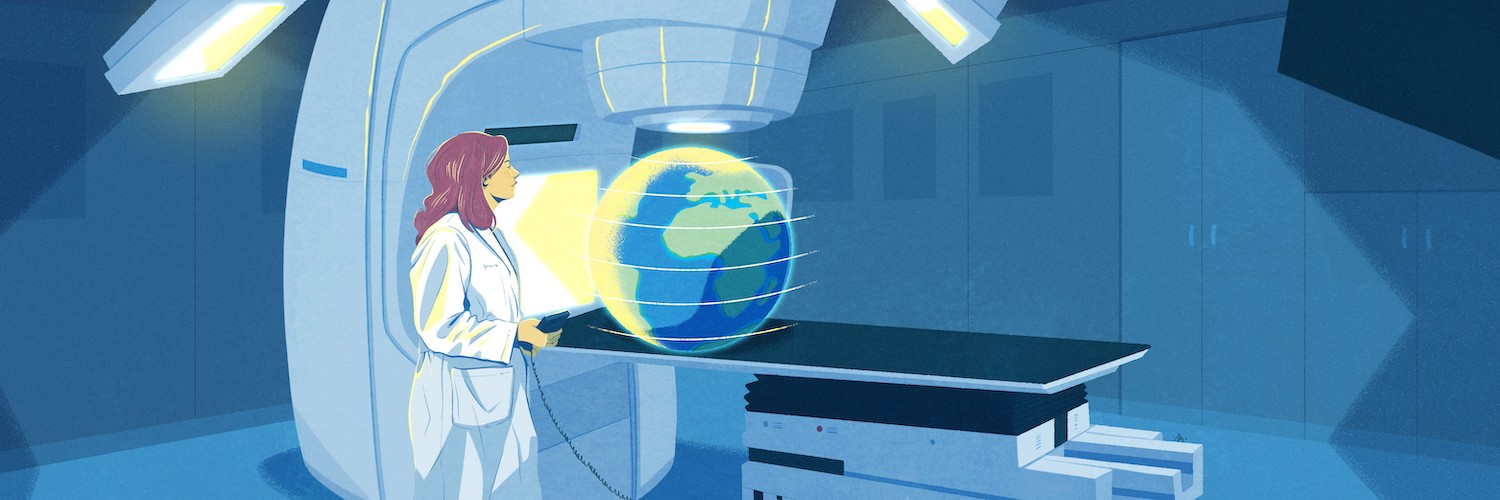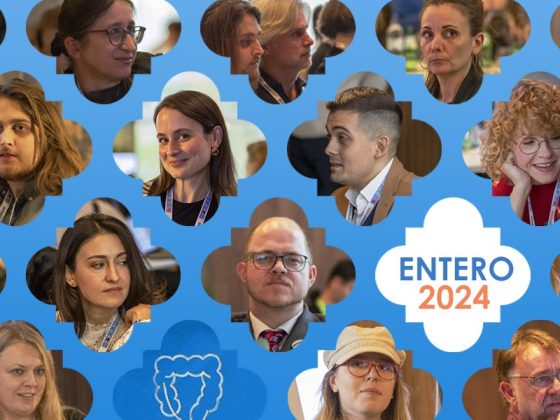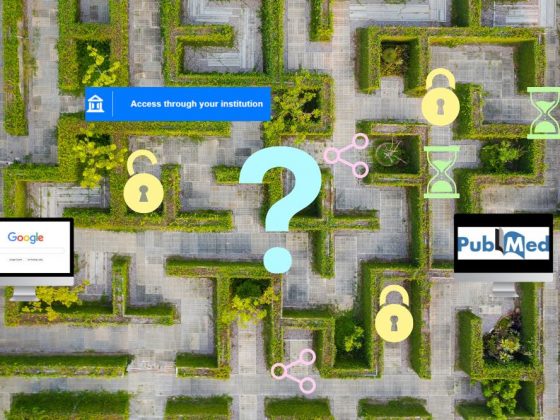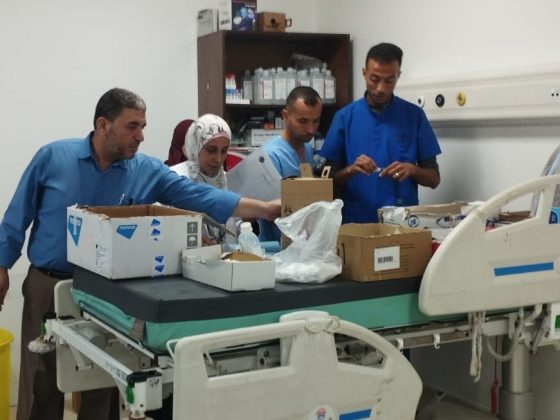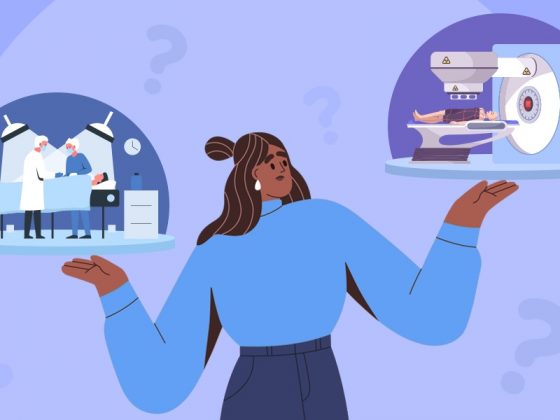Can artificial intelligence help design radiotherapy treatment plans, reducing time and cost while matching the quality of skilled professionals? That is the question that a new multi-centre and multi-arm ARCHERY study is trying to answer. The global study, still at an early stage, will begin recruitment in a few months and will complete in 2026.
ARCHERY will study radiotherapy treatment planning for three high-burden cancers – head and neck, cervical and prostate – in more than 1000 patients, treated at hospitals in India, South Africa, Jordan and Malaysia. It aims to evaluate the performance, in these different clinical settings, of a software, developed at the MD Anderson Cancer Center in Texas, that automates many of the processes involved in planning radiotherapy treatments. The answers it finds could significantly boost access to high-quality radiation therapy across the Global South.
The study is a bit of a unicorn – very rare and all the more valuable. Large-scale clinical radiotherapy studies of any type tend to be few and far between, as they cannot attract the commercial funding that drives new drug trials. Global studies seeking solutions for some of the world’s least-well-resourced countries are even rarer. That it is happening at all is an indication of the high hopes that are riding on it.
Radiotherapy is an effective treatment for almost half of all cancer cases. Yet almost 90% of cancer patients in low-income countries lack access to this type of treatment, according to a 2015 paper by the Global Task Force on Radiotherapy for Cancer Control. Improving access to high-quality radiotherapy is therefore an essential component of tackling cancer at a global level.
Over recent decades, efforts to improve global radiotherapy capacity have tended to focus on the philanthropic donation of radiotherapy equipment; far less attention has been paid to the requirement of developing high-quality services.
“It would need some 200,000 extra healthcare professionals to meet future radiotherapy needs so we are trying to see if AI can be used to automate it”
Planning radiotherapy treatment is a highly skilled and laborious process that involves defining the position, size and shape of the radiation beams that can combine the maximum impact on the tumour, with the least possible damage to nearby healthy organs.
It would need some 200,000 extra healthcare professionals to meet the radiotherapy needs of cancer cases by 2035, says Ajay Aggarwal, Associate Professor at the London School of Hygiene and Tropical Medicine, and chief investigator of the ARCHERY study, “so we are trying to see if artificial intelligence can be used to automate it [radiotherapy planning] and provide a solution.” In addition to assessing the quality of radiation planning using AI, he explains, the study will also gather data on the time and costs involved, to evaluate the overall impact of this approach to planning radiotherapy treatments in the three tumour types under investigation.
How does it work?
The AI software, ‘Radiation Planning Assistant’ (RPA), has been developed by a team at the MD Anderson Cancer Center, with the needs of low- and middle-income countries in mind. It is a web-based tool that aims to provide high-quality assistance to clinics with limited resources, through automating two key processes.
Usually when a radiotherapy treatment plan is being designed, the radiotherapy team sit at the terminal, go through the CT scans, and manually outline the areas around the tumour deemed at high risk of tumour spread, as well as the location of organs at risk of radiation damage. They then have to work out the size, shape and number of radiotherapy beams to achieve the optimal impact. It requires expertise and can take many hours.
With RPA, when the CT scan is uploaded, the software does the contouring and generates the treatment plan on its own. This can then be imported into the hospital’s own treatment planning system, where it is recalculated for their specific treatment device. The local team then have to review, edit, and approve the plan before it is used to treat a patient. This final step is essential, says Laurence Court, principal investigator of the RPA project at MD Anderson’s Department of Radiation Physics, as review by clinical professionals is still vital to ensure the effectiveness and safety of the radiotherapy treatment.
The study design will allow for additional analyses of the impact on the time taken to prepare treatment plans, and the associated costs
The study will compare the AI-generated with the final versions after review, editing and approval, to establish what proportion of automated plans have contours and dosimetry that meet predefined criteria for clinical acceptability. The prospective design of the trial, says Aggarwal, will allow for additional analyses of the impact the automated approach could have on the time taken to prepare treatment plans, and the associated costs. It also gives a fairer picture of how adopting the software could impact on everyday clinical practice across the full range of eligible patients. “The issue with evaluating the plan retrospectively,” he explains, “is that you don’t account for patient selection and you aren’t able to time the pathway properly. Also, in studying the plan prospectively, you can see the challenges with implementation across different departments.”
A global opportunity to cut deaths and improve survival
Increasing access to high-quality radiotherapy for cervical, head and neck and prostate cancers could make a big difference in tackling cancer across the global South. All three cancers are significant causes of death and ill health; all three are responsive to radiation; all three require expert planning to minimise damage to sensitive organs involved in normal toileting, sex life, speech, and more while delivering the strongest possible impact to the cancer.
The hope is that the automated RPA software could speed up throughput, lower costs and standardise quality for patients treated in existing radiotherapy units. This greater efficiency could also encourage much needed investment to improve radiotherapy capacity.
In India for instance, according to a 2019 study, only 545 teletherapy (external beam) units are available across the whole country – that’s less than half the number recommended by the World Health Organization for a population of that size. With 80% of that capacity located in the private healthcare sector, access is further limited by cost barriers.
“If the study results show that high-quality plans can be generated, it will solve a major problem currently in the system”
Indranil Mallick is a Senior Consultant in the Department of Radiation Oncology at Tata Medical Center, Kolkata – one of two centres in India participating in the ARCHERY study. He has high hopes that it can help improve access to high-quality radiotherapy for patients who need it, and mentions as particular strong points the fact that the RPA software can work with a wide range of radiotherapy equipment currently used across the world, and that the on-site skills required are relatively simple and can be found in most centres in low- and middle-income countries. “If the study results show that high-quality plans can be generated, it will solve a major problem currently in the system,” he says.
In Jordan, another lower-middle income country participating in the ARCHERY study, barriers to accessing radiotherapy include limited resources, inadequate infrastructure, and shortage of trained healthcare professionals, says Issa Mohamad, Consultant in Radiation Oncology, at the King Hussein Cancer Center, in Amman. “The study on AI-based radiotherapy is expected to overcome these by introducing new technology that can streamline the treatment process and reduce the burden on healthcare professionals and spare more time for research development,” he says. If the study results are positive, he adds, the King Hussein Cancer Center may completely shift their radiotherapy practice to an AI-based approach.
The AI travel test
Can an AI-tool trained in Global North work as effectively across Global South? That is another question that the ARCHERY study may throw some light on.
The AI-software developed by MD Anderson Cancer Center was trained using data primarily from the US, which could affect its relevance in other settings. “That said, we have tested the system with data from other countries, but more extensive testing is needed,” says Court. Potential issues relate not just to differences in patient populations, but also variations in clinical practice. In an effort to address this, the developers asked 30 radiation oncologists at 15 institutions, across 5 countries, to review the RPA output. In 80% of cases they scored its plans as ‘use-as-is’, or with ‘minor edits’. “Overall, we intend to address this imbalance as we move forward,” says Court.
The team has published papers in collaboration with partners from countries including South Africa and Tanzania. With the ARCHERY study, they expect additional research publications on the use of the current tools across a spread of resource-poor countries, as well as improvements based on the international collaboration. “Eventually we aim to provide these tools to clinics in low-resource centres, thus supporting their clinical work, hopefully helping them scale their efforts to treat more patients,” said Court.
For Aggarwal, getting the ARCHERY study agreed and running has been a bit of a marathon. He hopes it will demonstrate not just the tremendous contribution that AI applications could make towards global efforts to tackle cancer, but also the importance of providing support for this sort of research. The biggest roadblock for conducting studies like these, he says, is that there is no sustainable pipeline for funding. “The study design was ready three years ago, it took two and half years to get funding… If we want to evaluate AI, if we want to see if it works in all countries’ settings, if we want to get the best quality care for patients, then we need to be able to fund the studies and the evaluation.”
The ARCHERY study is coordinated by the MRC Clinical Trials Unit at University College London, and is funded by the US National Institutes for Health and the Switzerland-based Rising Tide Foundation for Clinical Cancer Research.
Illustration by: Maddalena Carrai


